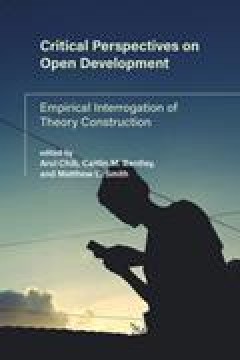Filter by

"Ask mamma", or, The richest commoner in England
- Edition
- -
- ISBN/ISSN
- -
- Collation
- [2], viii, [4], 423 p., [32] leaves of plates : 23 cm,Title vignette, in colors
- Series Title
- -
- Call Number
- -
- Edition
- -
- ISBN/ISSN
- -
- Collation
- [2], viii, [4], 423 p., [32] leaves of plates : 23 cm,Title vignette, in colors
- Series Title
- -
- Call Number
- -

"Plain or ringlets?"
- Edition
- -
- ISBN/ISSN
- -
- Collation
- [2], x, [4], 398 p., [20] leaves of plates : 23 cm,Title vignette, in colors
- Series Title
- -
- Call Number
- -
- Edition
- -
- ISBN/ISSN
- -
- Collation
- [2], x, [4], 398 p., [20] leaves of plates : 23 cm,Title vignette, in colors
- Series Title
- -
- Call Number
- -

The ex-meridian calculator. Complete table for finding the latitude by an ex-…
- Edition
- -
- ISBN/ISSN
- -
- Collation
- 3 p. (mounted on covers),Cover-title
- Series Title
- -
- Call Number
- -
- Edition
- -
- ISBN/ISSN
- -
- Collation
- 3 p. (mounted on covers),Cover-title
- Series Title
- -
- Call Number
- -

American autographs, historical and literary
- Edition
- -
- ISBN/ISSN
- -
- Collation
- 88 p,Cover title,318 items
- Series Title
- -
- Call Number
- -
- Edition
- -
- ISBN/ISSN
- -
- Collation
- 88 p,Cover title,318 items
- Series Title
- -
- Call Number
- -

Reconceptualizing the Industrial Revolution
Closely linked essays examine distinctive national patterns of industrialization.This collection of essays offers new perspectives on the Industrial Revolution as a global phenomenon. The fifteen contributors go beyond the longstanding view of industrialization as a linear process marked by discrete stages. Instead, they examine a lengthy and creative period in the history of industrialization,…
- Edition
- -
- ISBN/ISSN
- 9780262289504
- Collation
- 1 online resource (vi, 356 pages).
- Series Title
- -
- Call Number
- -

Critical Perspectives on Open Development: Empirical Interrogation of Theory …
Over the last ten years, “open” innovations—the sharing of information and communications resources without access restrictions or cost—have emerged within international development. But do these innovations empower poor and marginalized populations? This book examines whether, for whom, and under what circumstances the free, networked, public sharing of information and communication re…
- Edition
- -
- ISBN/ISSN
- 9780262363327
- Collation
- -
- Series Title
- -
- Call Number
- -

The health of nations : infectious disease, environmental change, and their e…
In recent decades, new pathogens such as HIV, the Ebola virus, and the BSE prion have emerged, while old scourges such as tuberculosis, cholera, and malaria have grown increasingly resistant to treatment. The global spread of disease does not threaten the human species, but it threatens the prosperity and stability of human societies.In this pathbreaking book, Andrew Price-Smith investigates th…
- Edition
- -
- ISBN/ISSN
- 9780262281911
- Collation
- 1 online resource (viii, 220 pages) : illustrations
- Series Title
- -
- Call Number
- 610 PRI h

Oil, illiberalism, and war: An analysis of energy and US foreign policy
The United States is addicted to crude oil. In this book, Andrew Price-Smith argues that this addiction has distorted the conduct of American foreign policy in profound and malign ways, resulting in interventionism, exploitation, and other illiberal behaviors that hide behind a facade of liberal internationalism. The symbiotic relationship between the state and the oil industry has produced dev…
- Edition
- -
- ISBN/ISSN
- 9780262327527
- Collation
- 1 online resource (xxxiv, 210 pages) :map
- Series Title
- -
- Call Number
- -

The Promise of Artificial Intelligence: Reckoning and Judgment
An argument that—despite dramatic advances in the field—artificial intelligence is nowhere near developing systems that are genuinely intelligent. In this provocative book, Brian Cantwell Smith argues that artificial intelligence is nowhere near developing systems that are genuinely intelligent. Second wave AI, machine learning, even visions of third-wave AI: none will lead to human-level i…
- Edition
- -
- ISBN/ISSN
- 9780262355209
- Collation
- -
- Series Title
- -
- Call Number
- -

An Invitation to Cognitive Science, Volume 3: Thinking (Second Edition)
An Invitation to Cognitive Science provides a point of entry into the vast realm of cognitive science, offering selected examples of issues and theories from many of its subfields. All of the volumes in the second edition contain substantially revised and as well as entirely new chapters.Rather than surveying theories and data in the manner characteristic of many introductory textbooks in the f…
- Edition
- 1
- ISBN/ISSN
- 9780262283922
- Collation
- -
- Series Title
- -
- Call Number
- -
 Computer Science, Information & General Works
Computer Science, Information & General Works  Philosophy & Psychology
Philosophy & Psychology  Religion
Religion  Social Sciences
Social Sciences  Language
Language  Pure Science
Pure Science  Applied Sciences
Applied Sciences  Art & Recreation
Art & Recreation  Literature
Literature  History & Geography
History & Geography